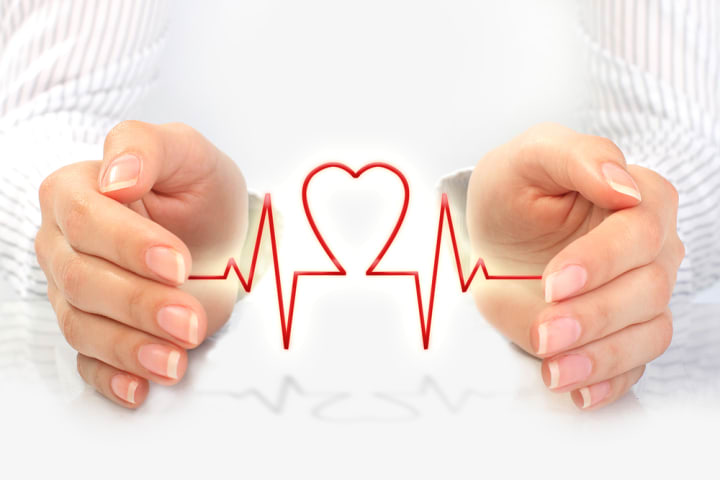8 Effects of Sleep Apnea on Physical and Mental Health
With Some Science-backed Ways to Fight It

Sleep apnea happens when breathing is interrupted while sleeping. It’s a rather common sleep disorder, caused by upper throat muscles being narrow and thus preventing the air from flowing freely into the lungs.
Sleep apnea most commonly affects overweight people, those who snore, and people with various physical disabilities. On average, people suffering from sleep apnea experience 30 uncontrolled breathing suspensions a night, and some might even experience the feeling of choking.
These breathing pauses can have many negative health effects, including headaches, high blood pressure, and increased risk of stroke. Let’s dive into more details regarding the consequences of sleep apnea and try to find efficient ways to fight it.
It causes shortness of breath
If you suffer from sleep apnea, you might find it hard to catch your breath even during the day. Physical activities, such as exercising, running, or going up the stairs, will be more difficult than usual.
This is an effect particularly present in asthma patients and people suffering from chronic obstructive pulmonary disease.
It impacts your digestive system

Sleep apnea increases the risk of developing liver scarring and fatty liver disease. This condition could also lead to increased levels of liver enzymes.
Furthermore, apnea can worsen the symptoms of gastroesophageal reflux disease (GERD) and heartburn. This can additionally disrupt sleep quality, setting off a vicious cycle.
It is a disturbance for the endocrine system
Sleep apnea can also contribute to the development of type 2 diabetes. But how does that happen? Well, individuals suffering from sleep apnea are at a higher risk of having insulin resistance, which prevents the cells from responding adequately to insulin.
Apnea is also associated with high LDL cholesterol levels, heart disease, high blood pressure, and poor metabolism.
It is bad for your heart

We’ve already mentioned the connection between sleep apnea and high blood pressure and obesity. Naturally, both of these increase the strain on your heart. Together, this can lead to irregular heart rhythm which can have severe consequences, including stroke and heart failure.
It affects the reproductive system
Sleep apnea can decrease the libido, but not only that. For men, it can be a contributing factor to erectile dysfunction. It can also have a negative impact on fertility.
It creates structural changes in the brain
Central sleep apnea, which is caused by an interference of the signals your brain sends to enable you to breathe, can lead to some neurological symptoms, such as tingling and numbness. But one of the most severe, long-term effects of obstructive sleep apnea is changing the way the brain works.

A study performed at the University of California found that sleep apnea changes two important chemicals in the brain: glutamate and gamma-aminobutyric acid (GABA). Both of these are found in the region of the brain that regulates thinking, emotions, and certain physical functions. Disturbances can change endorphin production and affect the mood.
It can affect the concentration of gray matter
A study published in the journal SLEEP claims people with sleep apnea have a reduced cerebral cortex, which affects information processing. This can, in some cases, result in reduced cognitive ability and progressive brain damage.
People going through this type of progressive health deterioration can also experience emotional problems and poor memory.
How to fight sleep apnea
Sleep apnea has a number of causes, and it has varying effects on different people. Therefore, there cannot be a universal solution. First, you will need to visit your physician, who can further direct you to other experts, such as neurologists.
Here are some of the most common ways to approach this issue:
- Some people have found that enforcing mouth breathing by using tape at night and trying to breathe through the nostrils consistently during the day, to be helpful in the struggle against sleep apnea. And truly, changing the “habit” of mouth breathing can bring relief and long-term health improvement.
- Try using airway pressure devices such as a CPAP mask, which will help deliver air pressure while you sleep. This keeps your air passages open and relieves the symptoms of sleep apnea while preventing snoring.
- If you have tested all the previous options and found they’re not effective in your case, you can opt for surgical treatment. There are different treatments depending on your condition, and they include tissue removal, tissue shrinkage, jaw repositioning, implants, nerve stimulation, and tracheostomy (creating a new passageway).
- Lifestyle changes can be of great use for dealing with sleep apnea, particularly with some of its symptoms. Regular exercise, along with a balanced diet, and weight loss can attack sleep apnea at its roots.
- You should avoid alcohol and sleeping pills. They relax the muscles in the throat and interfere with breathing. Smoking is another bad habit to renounce.
- Try to avoid sleeping on your back because it can block your airway. Instead, sleep on the side or on your stomach.

Many people ignore sleep apnea, considering it a normal disturbance in their life. If you are one of them, we hope this article successfully and precisely presented the potential consequences of this condition and that you will finally make a step towards solving this problem. As you can see, you have various options, ranging from mouth tapes to surgery – you just need to find the one that works for you.






Comments
There are no comments for this story
Be the first to respond and start the conversation.